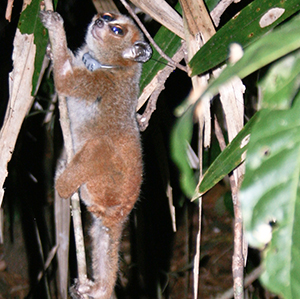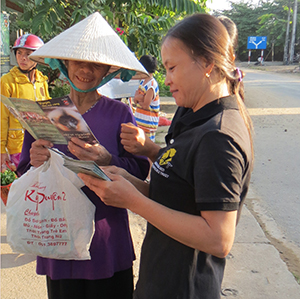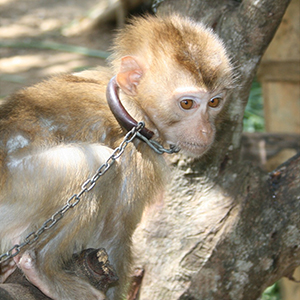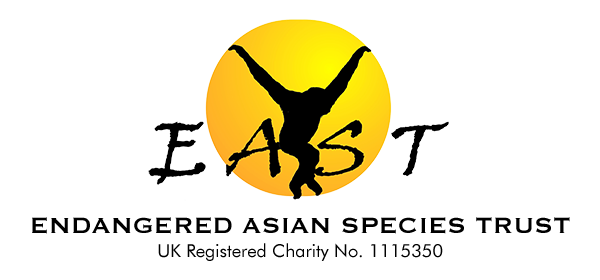The Endangered Asian Species Trust (EAST) is a UK charity established by Monkey World-Ape Rescue Centre (UK) and the Pingtung Rescue Centre (Taiwan).
Our mission is to help conserve Asia’s endangered wildlife by:
- Tackling the illegal wildlife trade in Asia, with a current focus on endangered primate rescue and reintroduction in southern Vietnam.
- Engaging communities through conservation education and awareness.
- Encouraging responsible tourism, respecting wildlife and wild places.
1. Endangered Primate Rescue and Reintroduction
The Dao Tien Endangered Primate Species Centre opened in 2008 within Cat Tien National Park in southern Vietnam. This is the flagship project for EAST – and the central point for a lot of our work.
This specialised project focuses on the rescue, rehabilitation and reintroduction of the four endangered primates found in the region: golden-cheeked gibbon (Nomascus gabriellae), pygmy slow loris (Nycticebus pygmeaus) black-shanked douc (Pygathrix nigripes) and silvered langur (Trachypithecus margarita).
To date we have rescued over 50 endangered primates, with 27 of these rehabilitated and released into native habitats, and tracked after release using radio collars. Many more are on track for release after their rehabilitation at Dao Tien.

2. Conservation Education & Community Engagement
For the long-term survival of these species, we have a duty to ensure future generations take an active interest in conservation. We work to engage the local community and beyond to be advocates for the environment, providing information at schools, morning markets and community meetings.
Since opening in 2008, we have reached over 5,000 students with field trips to the centre, outreach to local schools and inner-city projects in Vietnam.
Now, we are embarking on links with universities internationally in the field of environmental education.

3. Responsible Tourism; Respecting Wildlife & Wild Places
Travelling through Asia, macaques are the primates most likely to be seen chained to a post at a tourist attraction or left neglected in a small cage at a resort.
This highly-intelligent primate is hunted illegally:
- for research laboratories
- for traditional medicine (bones boiled down for a tonic)
- for meat
- for tourist attractions
Our founding organisations, Monkey World – Ape Rescue Centre (UK) and Pingtung Rescue Centre (Taiwan), have worked to try to change this.
Monkey World – Ape Rescue Centre:
Monkey World has rescued pig-tailed and stump-tailed macaques used for medical research in the UK.
They were kept for up to 15 years in solitary confinement before rescue.
Their rehabilitation at Monkey World has exceeded all expectations. They have rebuilt their lives, developed hierarchies and vital friendships – regaining quality of life.
Pingtung Rescue Centre:
Pingtung, based in Asia, has been involved more directly in the frontline of confiscations from the illegal trade, rescuing more than 500 Formosa macaques, now living happily in large groups at the centre. But, sadly the centre has now reached capacity and cannot accept any more.
The number of macaques in the illegal trade is so vast that rescue centres reach capacity quickly and then have to close their doors.
Education:
Conservation education is a very powerful tool that can reach out and protect more individual macaques from needing to be rescued.

